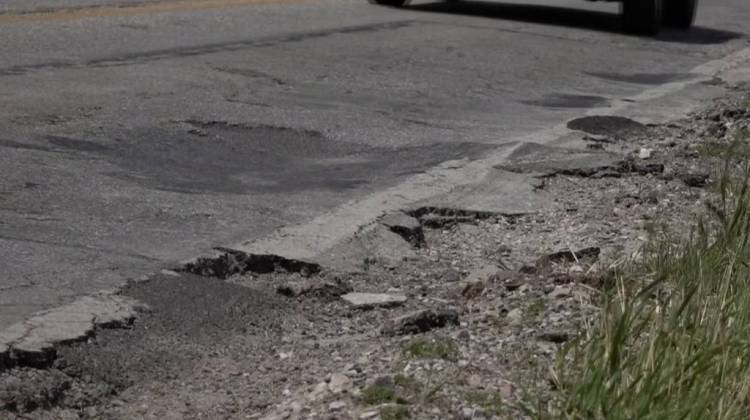
Indiana is one of the top states in the U.S. for soybean production – a commodity on which China instituted tariffs once the president announced his own.
file photoThe U.S. Department of Agriculture says it’ll initially send farmers half of the $12 billion promised as restitution for damage caused by President Donald Trump’s trade war with China.
Of the $12 billion authorized to be used, only $6 billion will be spent at first and the other half kept in reserve. The relief is being criticized as an added expense that could hurt Hoosier farmers even more.
Indiana is one of the top states in the U.S. for soybean production – a commodity on which China instituted tariffs once the president announced his own.
University of Notre Dame finance professor Jeffrey Bergstrand says farmers were already facing economic pressures and the tariffs hurt them even more.
“By starting this trade policy war, the biggest losers are going to be any states such as Indiana that has a lot of tradeable goods; does a lot of exporting,” says Bergstrand.
He says while the relief money may help farmers in the short term, spending more government cash will also hurt them and others.
“We have to borrow more money,” says Bergstrand. “This tends to raise interest rates. That hurts farmers too. I mean are they going to be compensated for a higher interest rates for borrowing costs in order to purchase capital goods and the equipment that they need in a very capital intensive industry.”
The USDA announcement Monday broke down the $6 billion into three areas:
- About $4.7 billion will go towards initial aid for to farmers the administration says are being hurt by what it calls “unjustified retaliatory” tariffs.
- Up to $1.2 billion will be used for the federal government to purchase certain products for food banks
- Up to $200 million will be spent to help cultivate foreign markets for products from the agricultural industry
Bergstrand sees the farm aid more as an election year ploy than as actual relief.
“Here we are two months from the midterm elections,” he says. “Indiana is a state that supported the Trump administration in terms of the election so I see this as mostly politically motivated.”
He and most other economists have spoken out against the trade war, pointing out the problems with the president’s statement that trade wars are, in his words, “easy to win.”
 DONATE
DONATE







 Support WFYI. We can't do it without you.
Support WFYI. We can't do it without you.